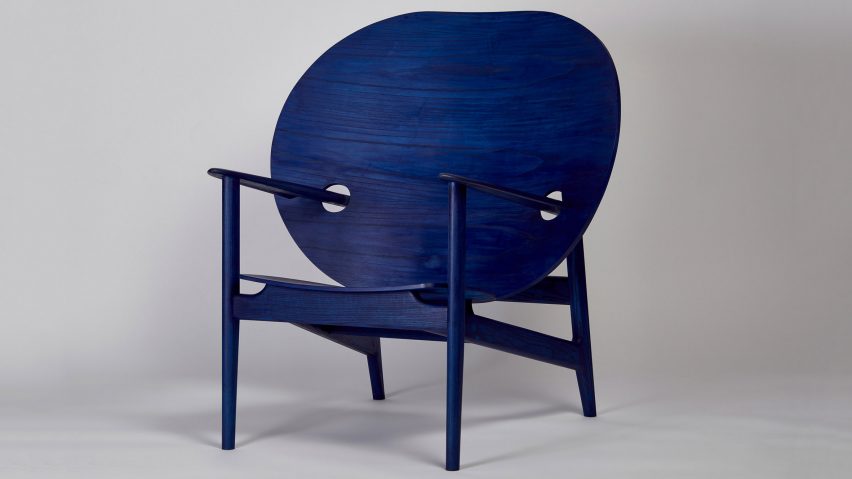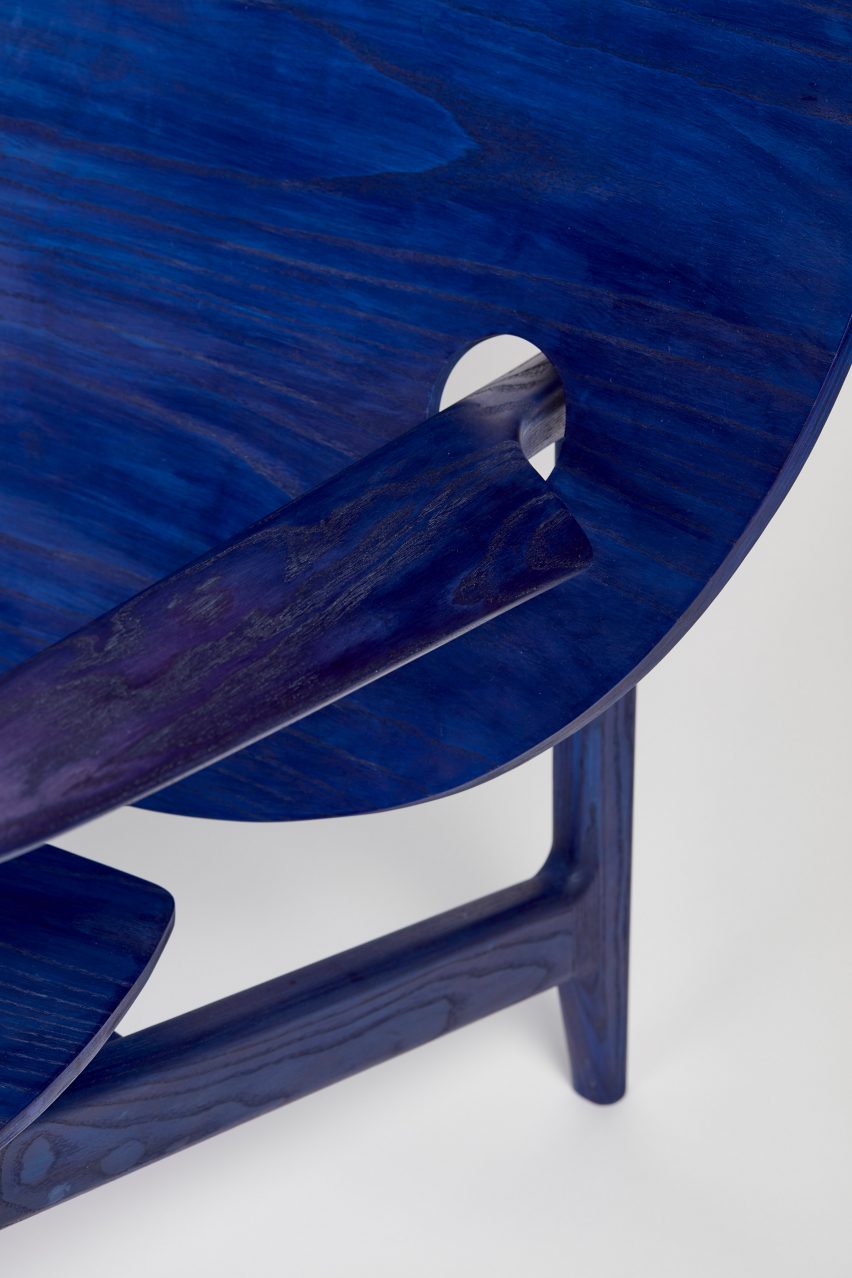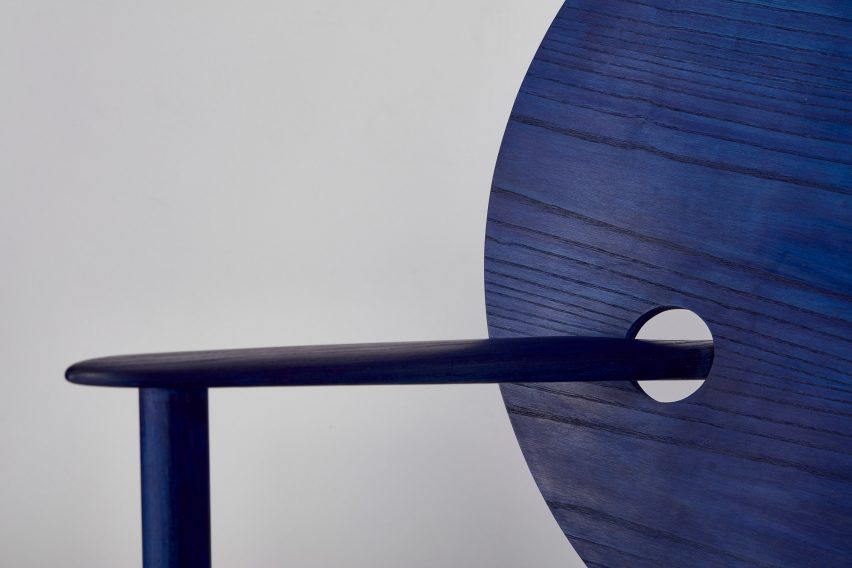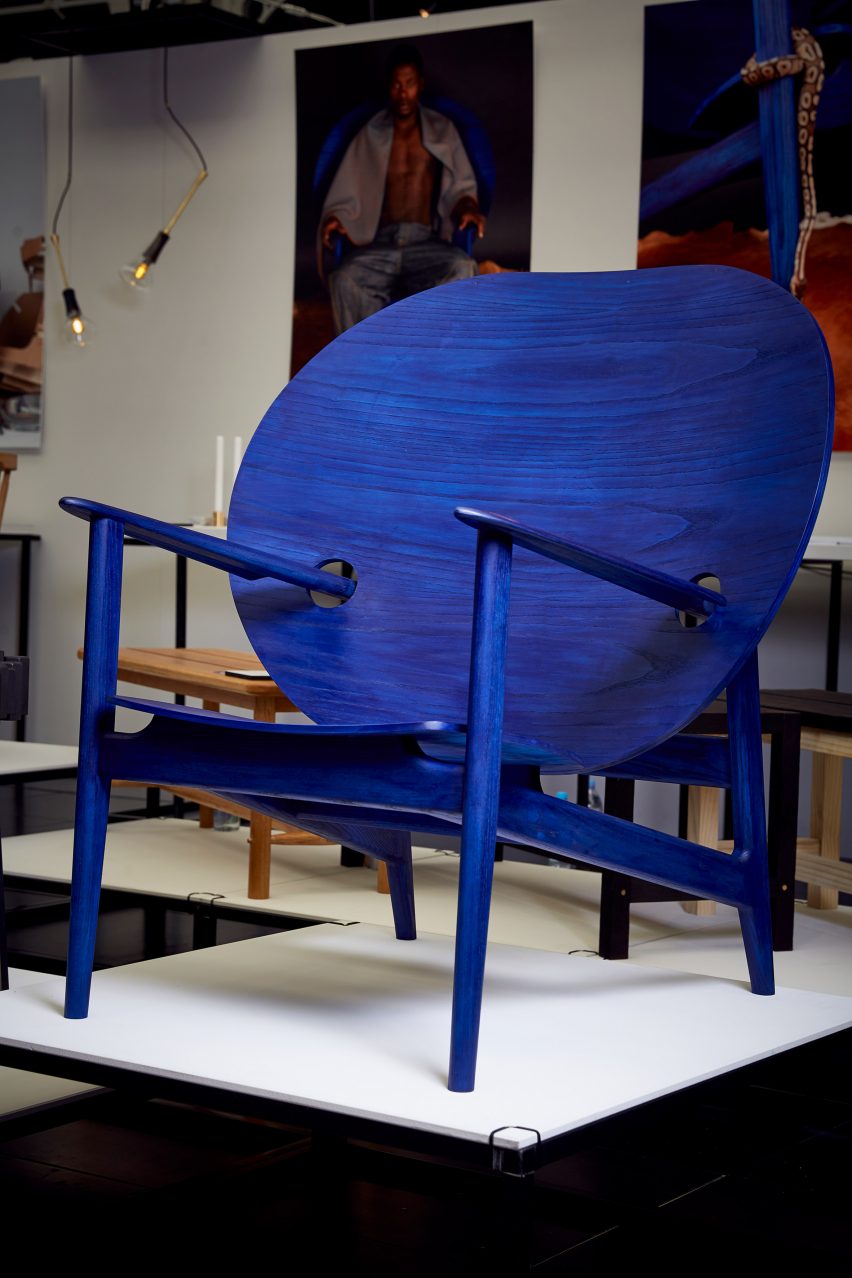
Mac Collins' afrofuturist throne references his Caribbean heritage
Northumbria University graduate Mac Collins looked to his Caribbean heritage when conceiving this afrofuturist chair, which aims to empower its user.
Called Iklwa, the term given to a short spear used by the Zulu, the painted ash-wood chair features a throne-like frame with a round backrest and narrow armrests that are modelled to resemble spears.

Collins, who studied product design at Northumbria University, came up with the idea for the furniture item when researching ideas for his graduate project earlier this year.
He took inspiration from his own Carribean ancestry and the cultural movement afrofuturism, which combines African culture with technology and science fiction.

"Throughout the first two years of my course, I based all of my designs on Japanese and European influences because they are so good at furniture making," he said. "But then I realised I actually have a really rich heritage of my own that I could be commenting on."
"I started looking into my own ancestry and how I ended up in the UK. It took me down quite a dark road to the beginnings of slavery and I felt really powerless and frustrated when I was reading these things," he explained.
"Throughout the research phase of the project, I was looking into movements that are becoming popular now, such as afrofuturism and afrocentralism. You take cultures that have been portrayed in negative ways and find the positives."

The resulting chair has been stained in a vibrant ultramarine blue shade – a colour "synonymous with royalty".
"I wanted the piece to invoke authority and entitlement," he explained. "I also wanted to add drama and intensity and I felt the richness of the ultramarine would help do this."
"The throne I have created is a response to that. It throws it completely on its head and has the power to empower, rather than oppress."

The success of Marvel's afrofuturist blockbuster The Black Panter has put Africa in the spotlight as a growing force in design, technology and fashion. To celebrate the cultural phenomenon, Dezeen has put together a list of 10 figures that are championing the movement.